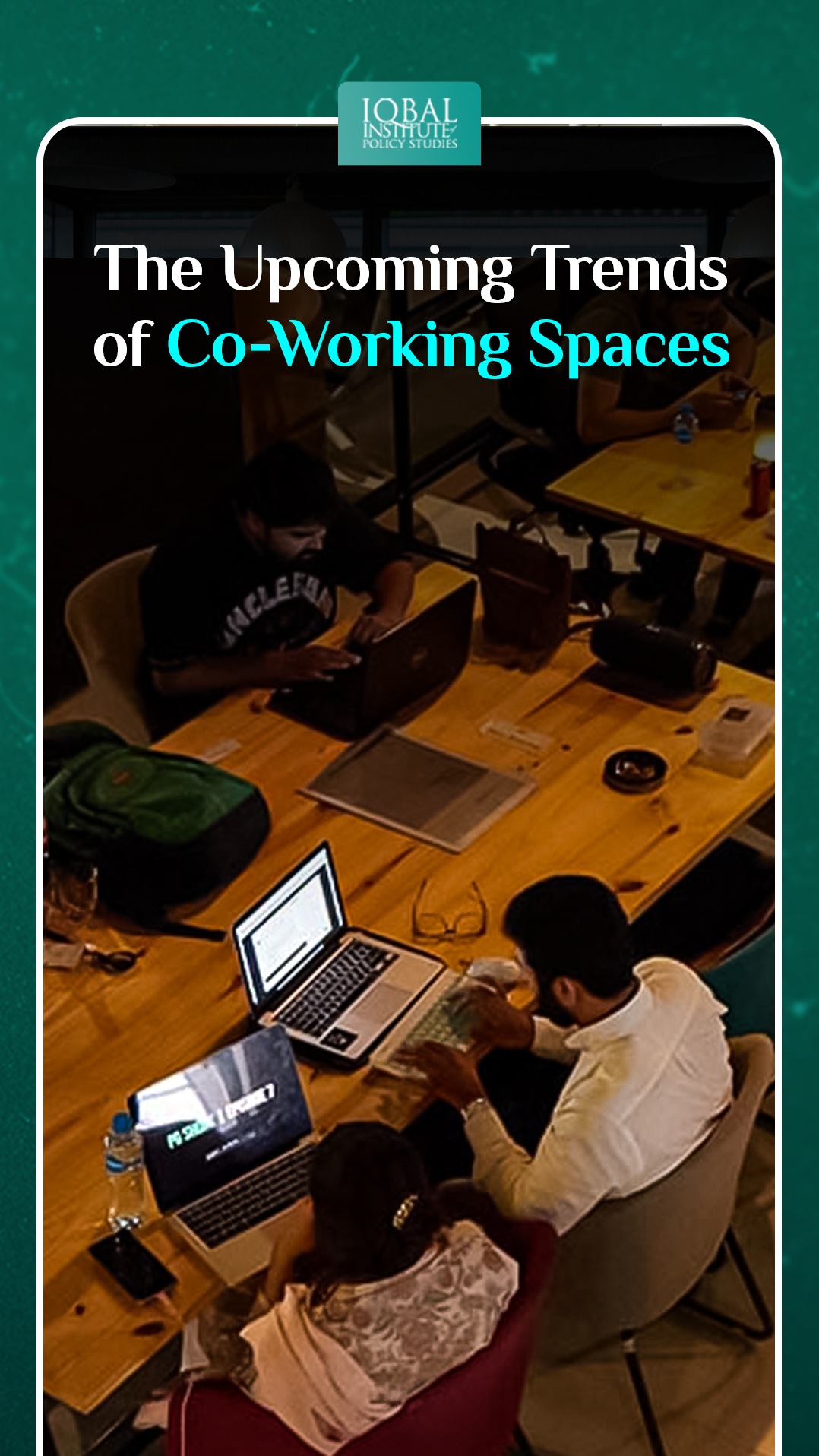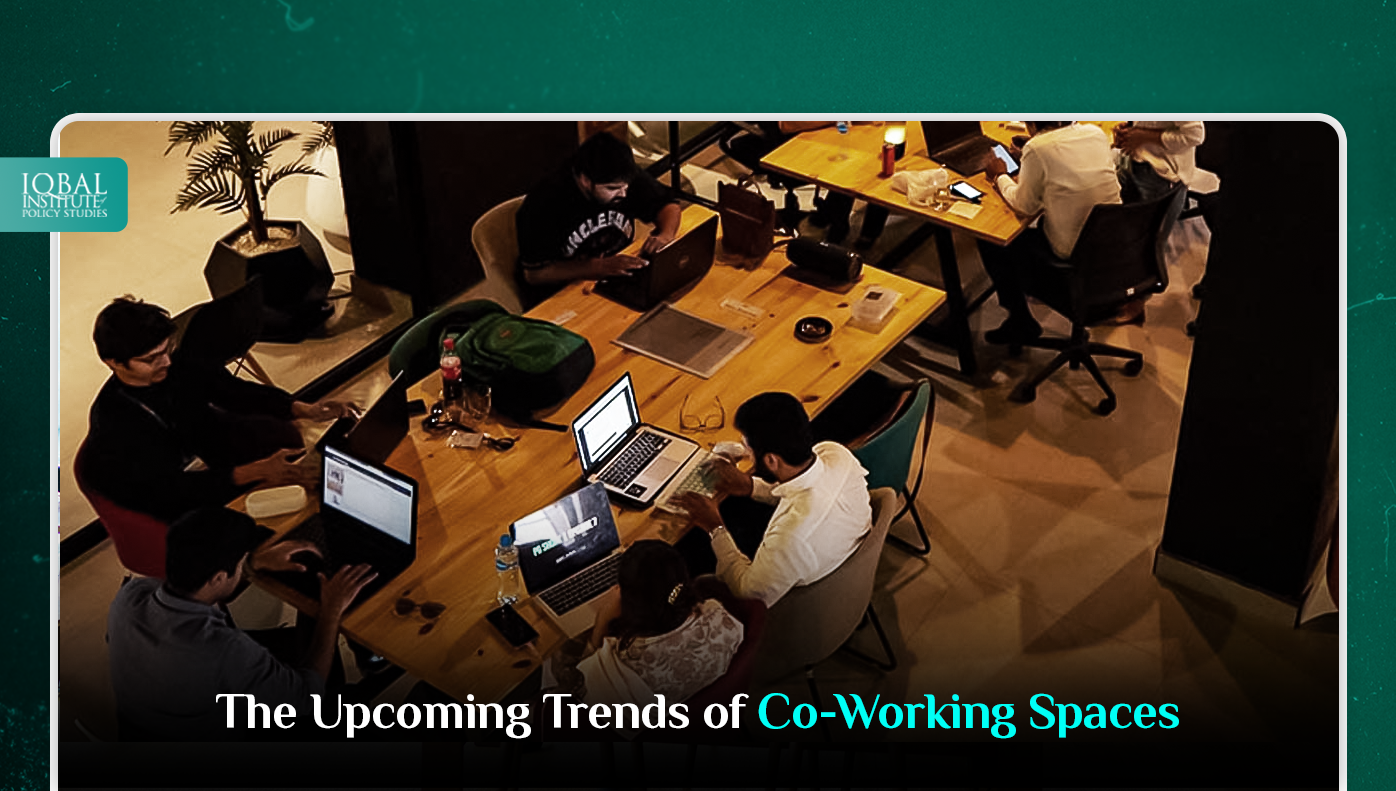The advent of co-working spaces has transformed the traditional concept of office space. However, this landscape of co-working spaces is significantly shaped by trends, characterised by technological breakthroughs, shifting work dynamics, and developing workplace preferences. Gone are the days when workers were restricted to cubicles and suffocated by hierarchical systems. Coworking spaces’ future offers a paradigm change towards adaptability, innovation, and limitless possibilities. These places will free professionals from the constraints of typical work environments, allowing them to enter a world where invention thrives, collaboration prospers, and the work-life balance becomes a reality rather than a pipe dream. These trends highlight the developing nature of co-working spaces and pave the way for a dynamic and flexible future of work. By adopting the ever-changing trends, co-working spaces will revolutionise how individuals work, interact, and invent in the years to come.
What is a Co-Working Space?
A coworking space is a setting created to house workers from various businesses who come to work there. These spaces have all the conveniences one would find in a conventional workplace. Flexibility is a key differentiator because coworking spaces do not require long-term leases.
What are the Trends?
Hyper-Personalization and Specific Co-Working Spaces
Hyper-personalization and speciality offers will become more prevalent in co-working spaces in the future. Co-working spaces will evolve to meet the needs of different industries, interests, and working styles as professionals seek customised workplaces that cater to their particular demands. In-demand amenities and resources will be made available in specialised venues for creative workers, tech startups, wellness devotees, or specialist industries, encouraging cooperation within certain communities.
Incorporation of Technology and Smart Spaces
technology will be a fundamental aspect of future co-working spaces. Automatisation, blockchain technology, and machine-to-machine communication will build smarter, more effective workspaces. From digital access systems and connected technology to personalised climate management and workspace optimization, technology will boost the user experience, increase efficiency, and enable smooth functioning within co-working spaces.
Hybrid Composition and Pliability
Flexible work schedules and hybrid work models have become more popular as a result of the COVID-19 epidemic. Future coworking spaces will facilitate in-person and remote collaboration by offering a versatile and adaptable environment, thus providing an amalgamation of virtual and real-world experiences. These spaces will meet the needs of hybrid work styles with improved virtual communication tools, online platforms for remote work, and effortless integration between physical and virtual workstations.
Green Practices and Sustainability
Co-working spaces’ future priorities will be heavily centred on environmental sustainability. These areas will feature eco-friendly practices such as environmentally friendly concepts, clean energy sources, trash reduction efforts, and green building materials in response to the increasing consciousness of the changing climate and environmental responsibility.
Emphasis on Well-Being and Work-Life Balance
As people prioritise well-being and work-life integration, future coworking spaces will put a larger emphasis on designing places that promote holistic wellness. Co-working spaces will increasingly incorporate design elements that support natural light, greenery, ergonomic furniture, exercise centres, and wellness initiatives. These areas will provide opportunities for unwinding, practising mindfulness, and participating in the community, promoting a happier and healthier work environment.
Customizable Membership choices
Individual needs-specific membership choices will become more prevalent in coworking spaces in the future. Professionals will have the option of short-term, part-time, or on-demand membership programmes as opposed to conventional long-term leases. This adaptability will allow people and enterprises to scale their work requirements in accordance with changing needs, enhancing cost efficiency.
Inclusion of Augmented (AR) and Virtual Reality (VR)
The utilisation of AR and VR in coworking spaces will be more prevalent as technology advances. Workers will be able to interact virtually and access information from anywhere.
Moreover, these spaces will provide AR and VR-enabled meeting places, dynamic virtual tours, and virtual collaboration tools to improve connectivity and get rid of physical limitations.
Diversity and Inclusivity
To promote an inclusive and equitable atmosphere, coworking spaces will prioritise diversity and inclusion in the future. Efforts will be taken to guarantee that different backgrounds, cultures, and viewpoints are represented. Spaces will adopt inclusivity through mentorship programmes, diversity-focused events, and efforts to assist underrepresented entrepreneurs and professionals. Within co-working spaces, these initiatives will encourage imagination, inventiveness, and cross-cultural cooperation.
Micro Spaces
Micro spaces will become mainstream in the future owing to changing preferences and demands of consumers. The localised work environment will be created in residential and suburban areas in the form of micro co-working spaces, offering convenience, affordability and accessibility to freelancers, small entrepreneurs and remote workers.
Industry-Specific Communities
Industry-specific co-working communities will become a prominent trend as co-working spaces continue to diversify. These specialised areas will be designed to meet the particular needs and criteria for collaboration of particular industries or professions. There might be co-working areas specifically for software firms, artistic studios, and medical or legal professions, for instance. Such sector-specific communities would promote collaborations, information exchange, and networking possibilities within a specialised ecosystem, offering beneficial resources and support catered to particular sectors.
Why should Pakistan Keep Up with the changing Co-Working Space Trends?
In Pakistan, coworking spaces are growing in popularity, due to the increasing number of freelancers and entrepreneurs. According to estimations, the country is home to approximately 3 million freelancers, ranking Pakistan among the top 5 economies for offering such services (Hanif, 2022). Moreover, one of South Asia’s busiest start-up ecosystems is now found in Pakistan (Mehmood, 2022). In 2020, there were over 100 micro co-working spaces (Malik, 202) and the number has grown ever since. Therefore, Pakistan, like many other nations, should adopt the new co-working space trends to maintain its competitive edge and promote economic expansion. By adjusting to these trends, the country will have the chance to draw in and keep a variety of experts, business owners, and startups. It will also help the nation’s corporate infrastructure progress and modernise overall.
Conclusion
Numerous trends that change how individuals work, collaborate, and connect will shape the future of co-working spaces. Coworking spaces will develop dynamic ecosystems that encourage adaptability, innovation, well-being, and deep connections by embracing these future trends. These spaces will stay at the forefront of providing people and organisations with dynamic work environments that foster flexibility, collaboration, and productivity as they continue to adapt and develop.
This article is written by Haneen Gul. Haneen is a Research Analyst at the Iqbal Institute of Policy Studies (IIPS).
References
Hanif, U. (2022, August 24). Freelancers earn $400 million in FY22. Retrieved from The Express Tribune: https://tribune.com.pk/story/2372834/freelancers-earn-400-million-in-fy22
Malik, S. B. (202, November 1). During pandemic, the rise of Pakistan’s shared workplaces. Retrieved from Arab News: https://www.arabnews.pk/node/1756966/pakistan
Mehmood, H. (2022, August 20). Are co-working spaces the future of work? Retrieved from Daily Times: https://dailytimes.com.pk/984657/are-co-working-spaces-the-future-of-work/



Leave a Reply